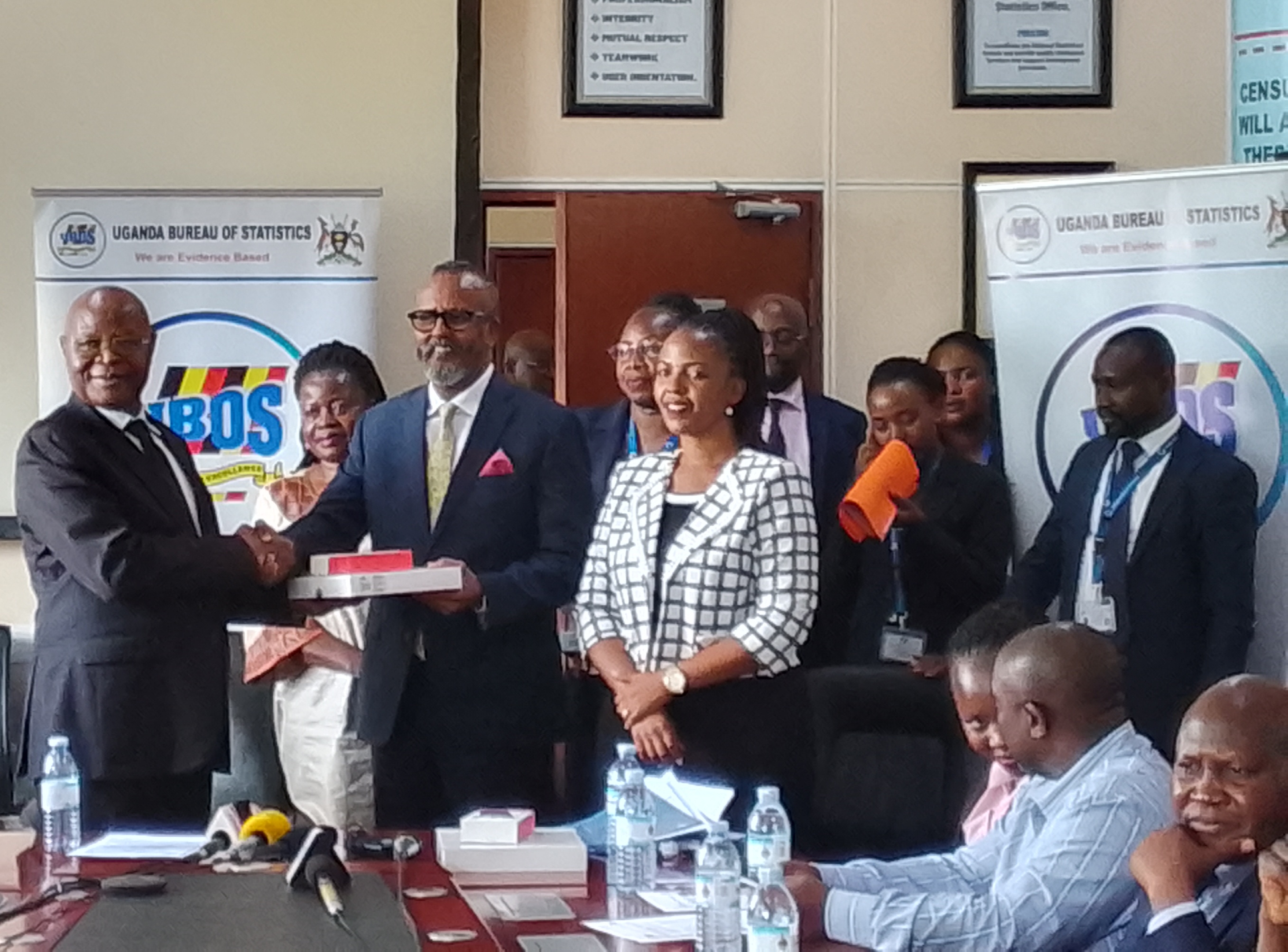UBOS boosts statistical capacity in Ugandan institutions with tablets donation
By empowering academic and cultural institutions with the tools they need to collect, analyze, and interpret data, UBOS is playing a crucial role in supporting evidence-based decision-making and ultimately contributing to the country's development agenda.

The Uganda Bureau of Statistics (UBOS), the central agency responsible for coordinating the National Statistical System (NSS), has taken a significant step towards enhancing statistical capabilities within the country by donating 5,195 tablets to twelve government higher institutions of learning and four cultural institutions. This donation, which took place on Monday afternoon, is a direct result of the 2024 National Population and Housing Census (NPHC), where the tablets were initially deployed.
These tablets, coupled with their accessories such as chargers and power banks, represent a substantial investment in the future of data collection, research, and analysis within Uganda. The devices, previously utilized by census enumerators, are now poised to empower students, researchers, and cultural institutions with the tools necessary for efficient and effective statistical work.
Dr. Chris Mukiza, the Executive Director of UBOS, highlighted the commitment made to donate the surplus gadgets to public institutions after the completion of the NPHC. “Institutions have been requesting for these tablets, and the board has accepted,” he stated at the handover ceremony held at the UBOS headquarters in Kampala. He urged the beneficiaries to maximize the utilization of the tablets, emphasizing their potential to drive meaningful insights and informed decision-making.
The donation was met with enthusiastic approval from representatives of the receiving institutions. Dr. Allen Kagenyi, the Coordinator of Academia at the National Council for Higher Education and a UBOS board member, underscored the importance of the initiative in the context of a rapidly evolving academic landscape.
“Uganda is now living in an academic environment that is shaped by data, research, and digital transformation,” she said. “Therefore, this investment is crucial to meet the standards of the 21st century.” Dr. Kagenyi further emphasized the need for collaborations that foster an informed generation, particularly given Uganda’s predominantly young population.
Prof. Ikoja Odongo, the Vice Chancellor of Soroti University, echoed this sentiment, describing the donation as an empowerment to the recipient institutions. He stressed the potential of the tablets to improve the quality of reporting on critical societal issues.
“This will improve the quality of reporting on issues in our society. We talk about poverty, but we don’t know the poverty indices. And you cannot transform a country without information,” Prof. Odongo stated, highlighting the crucial link between data and national development.
Beyond academic institutions, the donation also extends to cultural institutions, recognizing their role in preserving and promoting cultural heritage through data collection and analysis.
Andrew Byakutaga, the Prime Minister of Bunyoro Kitara, pledged that the kingdom would utilize the tablets to improve data collection within its territory. “When people think of kingdoms, they think of backcloth and calabashes, but we are a cultural institute that embraces technology,” he remarked.
He acknowledged the existing challenge of processing collected data effectively and emphasized the tablets’ role in achieving that goal. “We have a lot of data that we collect, but maybe it is not well processed. It’s important that data is collected and properly proceeded for usage. These tablets will help us achieve that,” he concluded.
The donation of these tablets represents a significant investment in Uganda’s statistical infrastructure and a commitment to fostering a data-driven culture across various sectors.
By empowering academic and cultural institutions with the tools they need to collect, analyze, and interpret data, UBOS is playing a crucial role in supporting evidence-based decision-making and ultimately contributing to the country’s development agenda.
The institutions of higher learning included the National Council for Higher Education (75), Makerere University (700), Kyambogo University (350), Lira University (200), Gulu University (200), Kabale University (200), Mbarara University of Science and Technology (350), Busitema University (200), Uganda National Institute for Teachers Education (200), Soroti University (150), Makerere University Business School (250), and Muni University (150).
The cultural institutions included Buganda Kingdom (1000), Bunyoro Kitara Kingdom (550), Busoga Kingdom (500), and Rwenzururu Kingdom (120).







